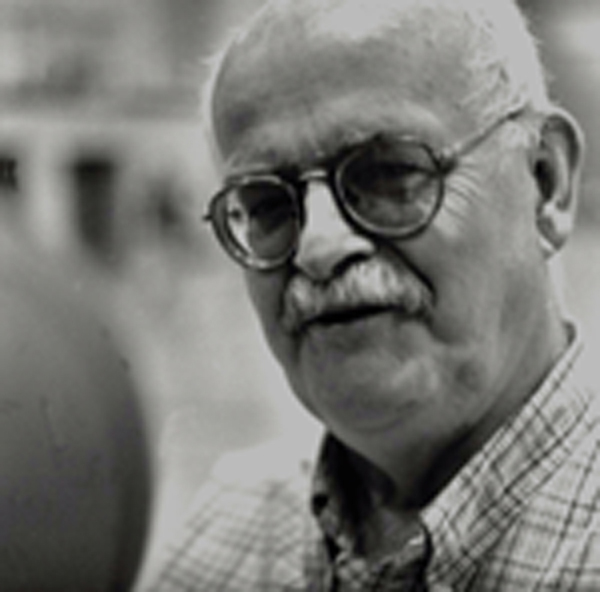TERRY MOSHER
I’ve done something very few have done. And I did it at the age of 17. I hitchhiked across the country from East to West. Talk about being stupid, because I really didn’t know what I was doing, or how to do it.
It all started in 1957 when after working most of that summer in Ferndale (Washington), I took the $600 I had saved and took a Greyhound bus to Buffalo. Then I took a bus to Olean, New York, six miles north of my sister’s house in Portville, my old hometown.
I’ve written some of this before, but I got into Buffalo around one in the morning. The Buffalo bus station was open, but was virtually shut down. I walked into the station and realized it was a dumping ground for homeless and drunks. There was probably 25 or so laying on numerous benches inside the station.
It was scary for the young teenager I was. But I found an open spot on one of the benches and sat there silently taking in this unruly scene. Everybody was a sleep except me. It wasn’t too long after I sat down that five men entered the station through the glass doors. The four younger guys dispersed to several exits and another stood guard over the stairs leading upstairs. The older gentleman dressed in a brown suit, who obviously was the leader, started going through the pockets of the homeless and the drunks (I could not tell the difference between them, and maybe there wasn’t any).
Now I was really scared. I quickly gathered in the scene and just as quick made a decision not to move. I had for just a second thought about getting up and trying to leave, but I just as quickly decided that was not a wise thought. I would most likely be stopped by one of the men guarding an exit.
So I just sat there quietly taking in this as the older man rummaged through the pockets of my sleeping partners. What is most remarkable is the older man, after searching and collecting whatever he could from the sleepers, never once looked at me or bothered me.
About 10 minutes after they arrived, the five men gathered and walked out together, with the older man leading the way. I finally could breath, and I relaxed, but just a little because I didn’t know if the five men would return for me.
It wasn’t about three or four minutes after the men left, that four Buffalo policemen entered the station. Even though I was just 17, I quickly figured the police and the five men were in cahoots together. Had to be. Police just don’t show up like that, just a few ticks of the clock after the bad men leave.
The police also didn’t bother me. They took a quick look around and left just as quickly as they came. I remember that shortly after they left, I got up and went outside and walked around the street for a few minutes. I remember that the street was littered with paper and looked like the very center of the poor area of Buffalo. That vision has remained with me all these years, even though about 10 years ago I was there with the family when he visited Niagara Falls and the core area of Buffalo looked much different. It had been cleaned up.
I don’t harbor any nightmares over the experience. I lived in New York State for the first 14 years of my life and I know that the state is different – much ruder, bordering on criminality. Not that there aren’t good parts of New York, and certainly there are very beautiful areas to it, including the Southern Tier where I was born and lived for those first 14 years. But Buffalo in the 1950s was a pretty dirty place.
Back to my hitchhiking. I stayed back in Portville longer than I had planned. It was my senior year of high school and at some point I decided to defy my father, who wanted me back in Ferndale. I think it started when I went to Portville football practice as a visitor. As I walked along the sidelines, I ran into coach Bud Fenton. He had coached all my older brothers – Ray, Ronnie and David – in Portville football.
“What happened to the Mosher built?” Fenton asked of me (I was about 6-5 and 150 pounds and my brothers were shorter and thicker). Then he watched as I threw the football to couple of my non-football playing buddies. I was throwing the ball about 60 yards and he said, “Get some gear on, you are my quarterback.”
I had to tell him my dad wouldn’t let me stay, and that I had to go back to Ferndale. But Fenton wanting me to play for him started me thinking about staying, and I actually did go to classes for a few days at the start of school at Portville. I did not officially enroll, however, and my sister Minerva, where I was staying, kept telling me I couldn’t stay. So eventually I got the message and one early morning I left my sister’s house and started hitchhiking. I had just $6.80 left of the $600, but not having much money did not stop me. I was gone.
I still had a couple dollars left when I arrived in Ferndale a week later. My brother David was living at home and going to Western Washington at the time and he was fascinated with my adventure. So the next year he too hitchhiked across country to Portville and then one-upped me by hitchhiking back.
I remember when he first talked about doing it, I tried to talk him out of it. It wasn’t the easiest thing to do, and it had its difficult moments with some weird drivers. I probably should have been killed a couple times. I survived only by the grace of God.
My intention was not to go back and talk about this. I believe I left off in telling my life story when Mary entered my life. A distant cousin and I were sitting at a table in the Wintergarden, a bar halfway between Ferndale and Bellingham in the winter of 1966. I had come back to Ferndale on Christmas vacation from my work in Tulsa, Oklahoma and I just had a few days left before I would fly out of Sea-Tac back to Tulsa.
I did not know the two women who walked into the Wintergarden that night. But I instinct knew the taller one was the Mary I had been told as a fifth-grader I would marry. Soon as they got settled at a table, I walked over and introduced myself. Sure enough, the tall woman was Mary.
Mary and I hit it off instantly and I came back to Ferndale five months later when my job petered out (the company closed down) and a month after that we married. Not long after we married in Bellingham, I accepted a job as an office manager with a beer-liquor firm in Fairbanks, Alaska. So away we went on a strange adventure to the land of the unknown.
We were in Fairbanks for just about a year before we came back to the Pacific Northwest and a job I landed as estimator/business manager for a firm in Seattle. That year was different. We made great friends with people who were hardy and full of fun in a place (Fairbanks) where you had to be hardy and you are forced to be happy despite the weather (no sun, lots of sun, much snow and cold, and lots of water via a flood).
I remember many things about the Fairbanks adventure, but two jump to mind without much prodding. One night I walked from our apartment to the University of Alaska-Fairbanks gym to watch a game with Western Washington. The mile walk came with a minus 48 degree weather, and as I walked my breath froze in front of me.
Then there was the famous flood of the Chena River in 1967. Our apartment was about a mile from the downtown where the Chena River flowed. Mary and I had visited the downtown area along with hundreds of others around midnight and stood on the bank of the river while rain pelted us. The river at that time was just inches from spilling over into the downtown area, but we were comforted with the report from the Alaskan Corps of Engineers that the river was receding. Given that, Mary and I went back to the apartment.
Our apartment was in the second floor and around 3 a.m. I woke up to realize the Chena River was now flowing just a few feet below our window. I looked out the window and watched as cars came tumbling past. Fortunately, the water did not rise higher and after a few anxious days we were able to wade to the downtown area to see how much damage the flood had done.
Once the river had receded enough to clear the bridge Mary and I joined other co-workers at our company warehouse. Bob had brought along a rifle he would have used if anybody had dared loot our warehouse of our beer and liquor. Nothing happened, and you can surmise that we had a pretty good party going at the warehouse after we cleaned up the mess.
My job in Seattle lasted for about two years before the company was sold and some short-timers like me were laid off. The company did allow me time (and paid me) to look for another job, which I found on Feb. 2, 1970 when I reported to work at the Bremerton Sun as a sports reporter, which was about as far from any job I could have imagined for myself. I’ll talk about that switch of jobs in my next chapter. In the meantime:
Be well pal.
Be careful out there.
Have a great day.
You are loved.


